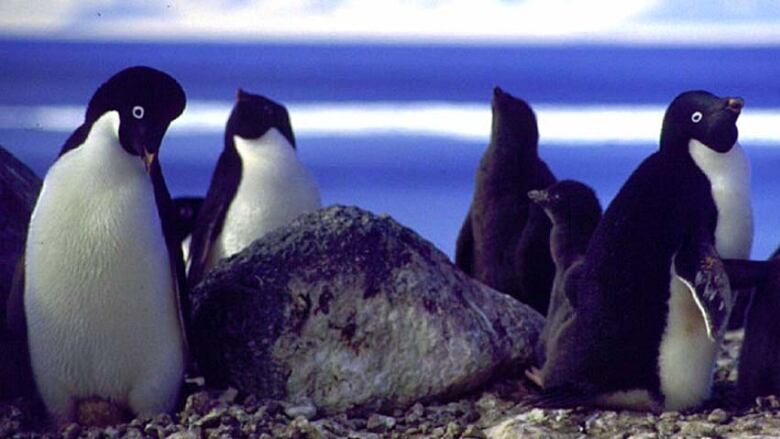Antarctic penguin genomes sequenced for study on adaptation
Specialized skin, feathers help survival in harsh environment

International researchers have analyzed the DNA of two Antarctic penguin species for the first time to find out what it is in their genetic makeup that allows them to adapt to extremely low temperatures, high winds and significant swings in daylight.
Adlie and emperor penguins were the focus of the studypublished in the open data journal GigaScience.
Penguins show distinct evolution relative to other bird species, said Guojie Zhang, assistant professor at the University of Copenhagen and associate director at China National GeneBank in China, in explaining the reasons behind the study.
They can't fly, have specialized skin and feathers, degenerated wings, and live in a cold environment in which most other birds could not survive.
Antarctic penguins have complicated biological systems to regulate temperature and to store energyfor long periods when they cant find food.
The scientists found that both penguins have expanded genes related to beta-keratins proteins that compose 90 per cent of feathers.
Most importantly, the penguinshad at least 13 genes responsible for a particular beta-keratin the highest number compared with other birds which ensured their feathers were short, stiff and packeddenselyto minimizeheat loss, remainwaterproof and helpunderwater motion.
Another gene, called DSG1, was responsible for the penguins' thick skin. This gene is also knownin humans who have a disease that causes thick skin on thesoles and palms.
In addition, Adlie penguins had eight genes involved in the metabolism of lipids (fats), while the emperor had three.
Zhang said the discoveries could help in understanding evolutionary changes and how organismsdeal with the conditions they are exposed to.












_(720p).jpg)


 OFFICIAL HD MUSIC VIDEO.jpg)
.jpg)



























































































